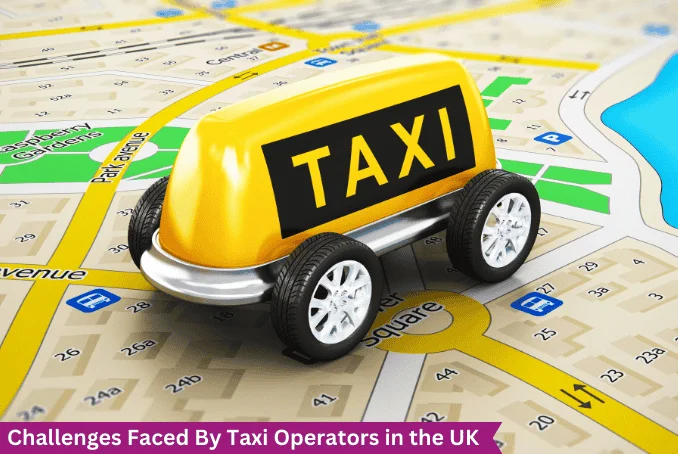
The taxi industry in the UK is currently facing a myriad of challenges that are reshaping how operators do business. From the lasting impacts of COVID-19 to fierce competition from ride-hailing apps, taxi operators are navigating a tricky landscape. In this piece, we’ll take a closer look at some of the key challenges that taxi operators are grappling with today and explore how they might adapt to these changing times.
The COVID-19 pandemic hit the taxi industry like a ton of bricks. During lockdowns, many drivers found themselves without work as people were confined to their homes. As a result, some drivers moved on to other jobs, leaving the industry with a significant shortage of licensed professionals.
While demand has started to bounce back as restrictions have lifted, the road to recovery is far from smooth. The shortage of drivers means longer wait times for passengers, which can be frustrating for everyone involved. On top of that, rising operational costs—fuel prices and inflation—are squeezing profit margins tighter than ever.
Taxi operators in the UK must deal with a complex patchwork of regulations that can vary wildly from one local authority to another. Getting and keeping the necessary licenses takes time and effort, which can detract from focusing on providing excellent service.
Moreover, stricter emission standards—especially in cities like London with its Ultra-Low Emission Zone (ULEZ)—are pushing operators to invest in greener vehicles. While this is undoubtedly a positive step for the environment, it often requires hefty upfront investments that can be particularly challenging for smaller firms trying to stay afloat.
The rise of ride-hailing services such as Uber has changed the game for traditional taxi operators. These platforms often offer lower fares and convenient app-based booking options that appeal to a younger, tech-savvy crowd.
To stay competitive, traditional taxi services need to find ways to stand out from the crowd. This might mean investing in technology that enhances customer experience—think real-time tracking and cashless payment options—or adjusting pricing strategies so they can compete without compromising their bottom line.

Today’s consumers have high expectations when it comes to convenience and service quality. They want more than just a ride; they’re looking for an experience that’s smooth and hassle-free. This means taxi companies need to adapt by offering features like mobile app bookings and real-time updates on vehicle availability.
Moreover, customers increasingly expect personalised experiences tailored to their needs. This trend requires operators not only to meet basic transportation needs but also to provide added value through comfort features or loyalty programmes that encourage repeat business.

One of the most pressing issues facing the UK taxi industry is the shortage of licensed drivers. Many who previously worked as taxi drivers have sought other employment due to financial instability during the pandemic. As demand for services increases, this shortage makes it difficult for operators to meet customer expectations effectively.
To combat this issue, taxi companies need to focus on attracting new drivers by highlighting the benefits of working in this sector. Offering competitive wages, flexible hours, and improved working conditions can help retain existing drivers while encouraging new entrants into the profession.

Rising operational costs are another significant challenge facing taxi operators across the UK. In particular, increases in fuel prices have put additional strain on profit margins as companies strive to keep fares affordable for passengers. Inflation also affects various aspects of running a taxi business—from vehicle maintenance costs to insurance premiums—making financial management crucial.
Operators must navigate these financial pressures while remaining competitive against both traditional rivals and emerging ride-hailing services. Strategic cost-control measures will be essential for sustaining operations during these challenging economic times.

The rapid pace of technological advancement presents both opportunities and challenges for taxi operators. While embracing new technologies can enhance service delivery and operational efficiency, it often requires significant investment.
Operators must stay informed about trends such as electric vehicles (EVs) and integrated booking systems that can streamline operations. However, transitioning to EVs involves not just purchasing new vehicles but also ensuring access to adequate charging infrastructure—a challenge that many local authorities are still working hard to address.
The UK taxi industry is facing a host of challenges that require thoughtful responses from operators. The ongoing effects of COVID-19, regulatory hurdles, competition from ride-hailing platforms, evolving customer expectations, driver shortages, financial pressures, and technological adaptation all contribute to an increasingly complex operating environment.
For taxi operators to thrive amidst these challenges, they must embrace innovation while prioritising driver welfare and customer satisfaction. By adapting their business models and investing in technology and training, they can position themselves for success in an ever-evolving landscape. The resilience shown by many within this sector will be crucial as they navigate these turbulent waters towards a more sustainable future.
Copyright © 2024 Harrow Minicab Rights Reserved